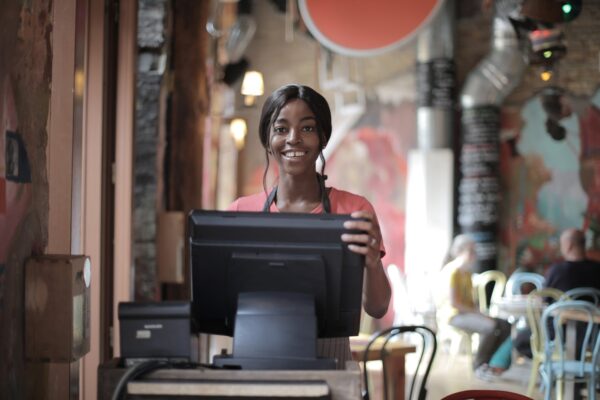Black businesses are on the rise again. After the nation witnessed countless closures of Black businesses during the pandemic, Black entrepreneurship now reportedly is on the upswing.
This shift, experts say, can be attributed to a number of factors.

The number of Black small business owners was 28 percent higher in the third quarter of 2021, than it was pre-pandemic. The number of self-employed Blacks dropped 31 percent from the first quarter of 2020, to the second, according to census data compiled by Robert Fairlie, a research associate at the University of California in Santa Cruz.
One of the cities that has seen a dramatic shift in Black-owned businesses is Pittsburgh, Pennsylvania. Historically, Black businesses have struggled to open and stay open in the city. Prior to 2020, Pittsburgh had the lowest rate of Black business ownership of any large city in the U.S.
Now that’s turning around. In 2020, the local Urban Redevelopment Authority approved more than 350 loans — and Black-owned businesses received almost half. In a normal year, the agency gives out around 30 to 50 loans in total, U.S. News and World Report reported.
The boost in Black business ownership in Pittsburgh is part of a larger trend. Just over 1.2 million Black Americans were self-employed in February 2022, compared to slightly under 1.1 million in February 2020. A different study from the website domain company GoDaddy found that Black owners have accounted for 26 percent of all websites created for new businesses since the pandemic began, compared to 15 percent before.
“I’m definitely seeing it here on the ground in Pittsburgh …The narrative is not only shifting but our actions and outcomes are starting to trend upward as well,” said Diamonte Walker, deputy executive director of the Urban Redevelopment Authority of Pittsburgh, which is investing $5 million into minority- and women-owned businesses.
“Healthy Black businesses are the key to healthy Black communities,” Walker said.
The racial reckoning that happened in the country after the police killing of George Floyd in Minneapolis in May 2020, helped the increase of Black businesses, as many American consumers actively sought to shop at Black businesses. Also, the funding community increased funding to Black startups.
According to government data compiled by the nonpartisan data center USAFacts, new business applications increased more in 2020, than they had in the past 15 years.
“The good news of this whole thing is, when you see business formations occurring in very ethnically diverse populations, then that would typically suggest that you would start to see increased hiring from these populations as well,” Ron Hetrick, an economist at Emsi Burning Glass, told U.S. News and World Report.
Also, a number of Black entrepreneurs used their government COVID-19 stimulus checks to start new ventures. One study of eight states, published by the National Bureau of Economic Research, found a correlation between stimulus checks and new businesses in Black neighborhoods.
Still, Black-owned businesses lag in the country, especially in businesses that employ others. One Brookings Institution report estimates that 800,000 more Black-owned employer firms are needed to reach equity.
And, there is a fear that this new crop of Black businesses might not have the funding to survive.
“There are a lot of businesses that are starting, but how do we help them sustain?” asked Tracey Clark Jeffries, a Black business owner herself, as the CEO of Capital Consulting Services in St. Louis, Missouri.
“What Black-owned small businesses need is a more structured model that can help them sustain over a period of three to five years,” Jeffries said.
Walker of Pittsburgh’s Urban Redevelopment Authority is hopeful that these new stats signify economic growth for Black Americans. “You see a glaring wealth gap between Black people and white people. That disparity is felt not only on an economic level but on a psychological and emotional level,” said Walker. “As these Black businesses start to thrive, it signals what’s possible.”




